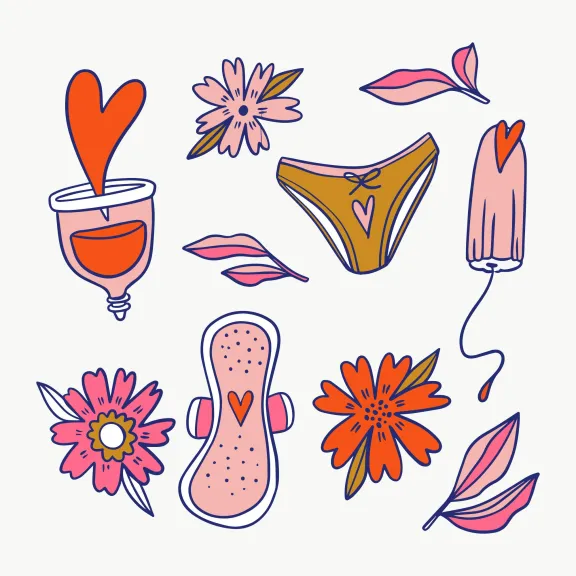
Designed by Freepik
Periods Shouldn’t Pause Education
Imagine you or a loved one missing school every month simply because they didn't have access to menstrual hygiene products to manage the blood from their vagina monthly. For millions of girls across Africa this is their reality.
For instance, in Uganda, 1 out of 10 girls don’t go to school during their period. There is a disparity in school attendance rates between girls and boys, particularly in low- and middle-income countries.
One of the most overlooked factors contributing to this gap is menstruation. The United Nations Children’s Fund (UNICEF) estimated, about 10% of school-age African girls didn’t attend school during menstruation or dropped out at puberty due to a lack of cleanliness and separate toilet facilities for female students at schools.
While things such as pads, tampons, panty liners, and menstrual cups may seem like everyday essentials to many, the reality is experienced differently for millions across borders. Globally, over 500 million people who menstruate lack access to adequate menstrual products and education, proper sanitation, and hygienic facilities.
A study, conducted in Siha District, northern Tanzania found that 30% of young girls reported missing school due to menstruation and 56% of the girls using toilets as changing places at school.
Many young girls prefer to stay home to avoid the embarrassment and shame associated with menstruation. This lack of access to proper menstrual supplies often forces them to use alternatives like tissue, which can negatively impact their reproductive health over time.
Cervical cancer remains a leading cause of death among women in sub-Saharan Africa, and the lack of access to basic menstrual hygiene products increases the risk of infections that can contribute to this health crisis. Just as sex education is crucial for teaching young girls about their reproductive health, access to menstrual products is essential for supporting their long term well-being, education, and empowerment as women.
In California, the Menstrual Equity for All Act of 2021 was driven by a growing recognition of period poverty as a public health and educational equity issue. Period poverty, the lack of access to proper hygiene facilities, education, and menstrual products, is not just an issue faced abroad, but also here in the United States, particularly in the Bay Area, which has a significant unhoused population.
Until recently, Menstrual Hygiene Management (MHM) has been largely overlooked by the Water, Sanitation, and Hygiene (WASH) sector. There has been a call for promoting MHM friendly practices in schools to create a supportive and conducive learning environment for young girls.
Some have even emphasized the importance of having medical emergency kits with essential medications for pain and emergency sanitary pads and the need to reduce tax or have tax-free sanitary pads which will help access to sanitary pads.
When girls have access to menstrual health education including safe and affordable sanitary items to manage their menstruation, they decrease their risk of infections and non-communicable diseases.
Good menstrual health management plays a role in empowering girls and other menstruators to remain in school and reach their full potential. Community organizations like Grace Period, Bay Area based, actively work at this intersection providing menstrual products for free, education, and advocacy to address period poverty both locally and globally.
Through distributing free menstrual hygiene kits, hosting workshops on period poverty, and partnering with schools and shelters, Grace Period is creating informed safe spaces where menstruators can continue to manage their periods empowered. These efforts show the importance of collective care and the ways community led initiatives can fill critical gaps left by broader health and education systems.



